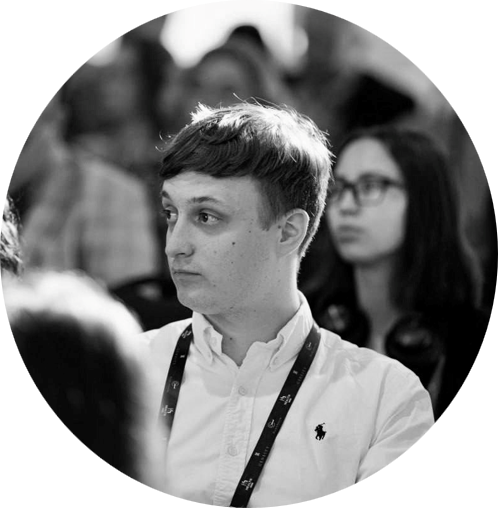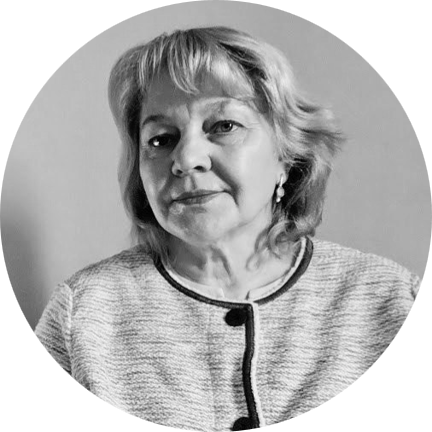ONcoLogiCa
ABOUT THE PROJECT
The ONcoLogiСa project is an initiative by the Council of Young Scientists at the R.E. Kavetsky Institute of Experimental Pathology, Oncology, and Radiobiology of the National Academy of Sciences of Ukraine. It aims to promote modern knowledge and advancements in oncology. The project’s goal is to unite researchers, doctors, postgraduate students, as well as students of biological and medical faculties to discuss the most pressing issues in the fight against cancer, exchange experiences, and enhance professional knowledge.
As part of the ONcoLogiСa project, a series of seminars, lectures, and training sessions will be held, covering modern methods of cancer diagnosis, treatment, and prevention, molecular oncology, immunotherapy, genetic research, and other innovative fields.
Participation in the ONcoLogiСa project will help postgraduate students studying in biomedical institutions deepen their knowledge, familiarize themselves with the latest fundamental and applied scientific trends, and find inspiration for their own research. The project’s implementation will foster interdisciplinary collaboration and attract talented young scientists to research activities.
Join our project to advance Ukrainian science together and contribute to the fight against cancer!
LECTURES
The Concept of the Three “C”s: Current Perspectives and Future Directions in Immunotherapy.
The emergence and progression of malignant neoplasms are determined by the complexity of interactions between the tumor and the host organism. The immune system plays a key role in these processes, ensuring antigenic homeostasis of the body. However, in many cases, malignant progression is accompanied by significant immunosuppression, which hinders an effective antitumor response and the elimination of neoplastic cells. The data accumulated over the past decades regarding the mechanisms by which tumors evade immune surveillance have been systematized and integrated into the concept of the “Three Cs“: “Camouflage,” “Coercion,” and “Cytoprotection.”

Taras Zadvornyi
PhD, Senior Researcher,
Department of Cytomorphology and Molecular Biological Markers of Tumor Growth,
R.E. Kavetsky Institute of Experimental Pathology, Oncology, and Radiobiology,
National Academy of Sciences of Ukraine
Tumor-Associated Macrophages as a Target for Antitumor Therapy
The metabolic plasticity of macrophages was discovered more than 20 years ago specifically in the context of their involvement in the tumor process. Since then, the concept of functional polarization of macrophages has undergone significant changes due to the expanded understanding of their origin, biological properties, and roles in numerous physiological and pathological processes. The lecture examines the origin and functions of tumor-associated macrophages (TAMs), analyzes the main therapeutic approaches targeting TAMs in cancer treatment, and outlines the prospects of using TAMs in adoptive immunotherapy of oncological diseases.

Larysa Skivka
Doctor of Biological Sciences, Professor,
Head of the Department of Microbiology and Immunology,
ESC «Institute of Biology and Medicine», Taras Shevchenko National University of Kyiv
From Sample to Conclusion: The Path of Histological Examination
Key stages of histological examination, from the collection of biological material to the formation of a pathological-histological diagnosis. You will learn about the processes of fixation, tissue processing, embedding, microtomy, staining, and the microscopic analysis of histological samples. The lecture will highlight the role of histology in disease diagnosis, important nuances at each stage of practical research, and the significance of histopathology in modern medicine and its contribution to patient treatment.

Dmytro Voronin
PhD Student, Department of Tumor Process Monitoring and Therapy Design
R.E. Kavetsky Institute of Experimental Pathology, Oncology, and Radiobiology,
National Academy of Sciences of Ukraine
Pathologist
Cytochemical Methods in the Diagnosis and Study of Oncogenesis
The aim of this review presentation is to explore the modern capabilities and limitations of cytochemical methods in the classification and differential diagnosis of certain tumor diseases, as well as in experimental studies of the biochemical/metabolic atypia of tumor cells.

Ostrovska Galyna
Doctor of Biological Sciences, Professor
Department of Cytology, Histology, and Reproductive Medicine
ESC «Institute of Biology and Medicine»
Taras Shevchenko National University of Kyiv
Mechanisms of Drug Resistance in Malignant Neoplasms: Modern Perspectives
This lecture focuses on one of the most pressing issues in oncology—the development of a drug-resistant phenotype in malignant transformed cells. We will examine various mechanisms underlying this phenomenon, including changes in the expression of genes encoding transport proteins, detoxification enzymes, and other key molecules. Additionally, we will discuss the latest approaches aimed at overcoming resistance and enhancing the effectiveness of chemotherapy.

Tetiana Borikun
PhD in Biological Sciences
Research Fellow
Department of Tumor Process Monitoring and Therapy Design
R.E. Kavetsky Institute of Experimental Pathology, Oncology, and Radiobiology
National Academy of Sciences of Ukraine
Resistance in Clinical Oncology Practice: Modern Challenges and Innovative Approaches
Therapeutic resistance is one of the key challenges in modern oncology, significantly affecting treatment efficacy and disease prognosis. The issues of primary and acquired resistance are reshaping treatment strategies, emphasizing the use of targeted therapy, immunotherapy, and combination treatment regimens to prevent disease progression. A crucial aspect in overcoming resistance is personalized medicine, which focuses on optimizing treatment strategies based on the molecular profile of tumors.

Olena Martyniuk
Clinical Oncologist
Scientific and Clinical Department of Breast Tumors and Reconstructive Surgery
National Cancer Institute, Kyiv, Ukraine


